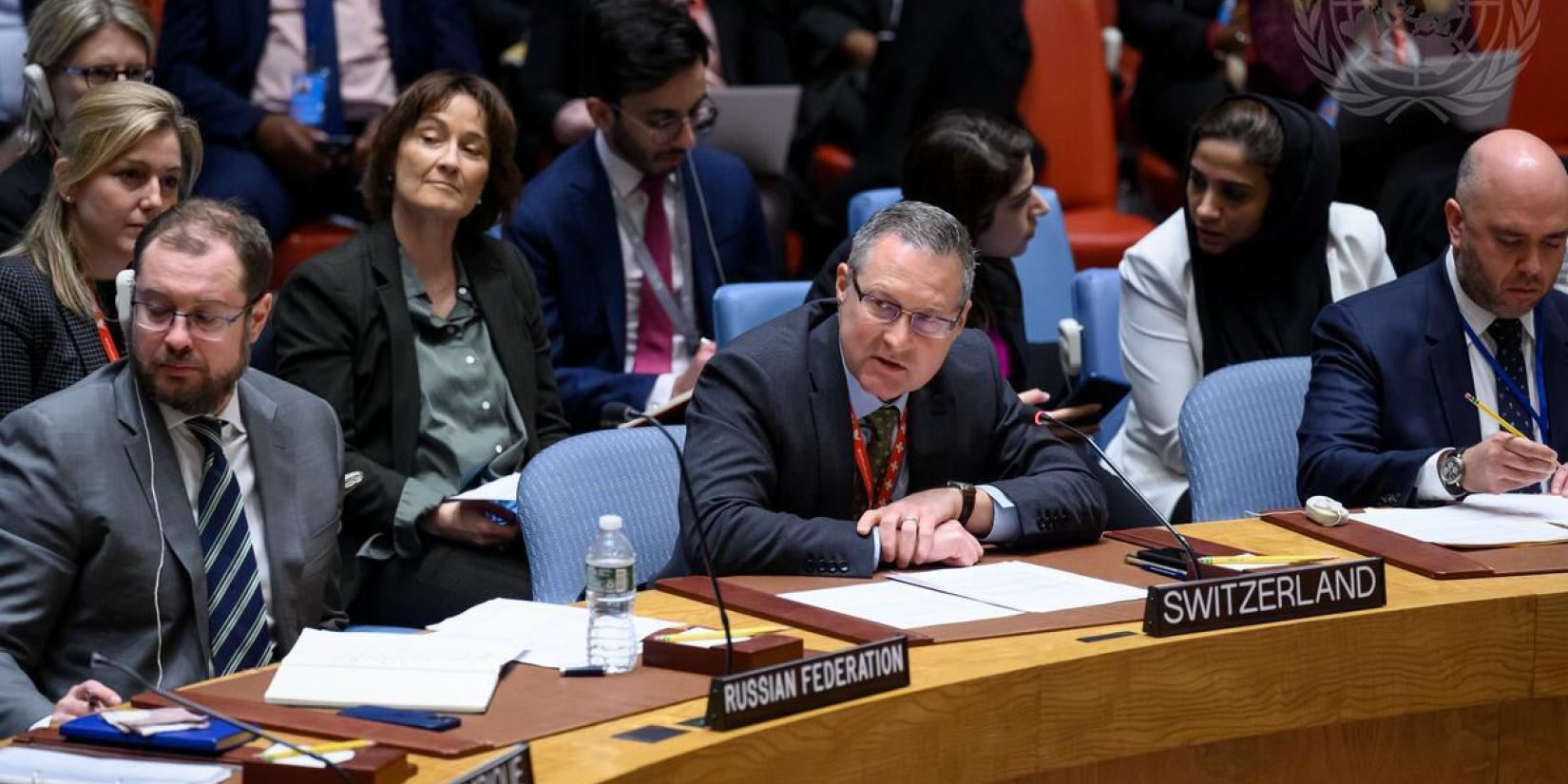"The facts are clear: our planet is getting warmer, causing water levels to rise and glaciers to melt. Switzerland is at the forefront of the latter phenomenon" said Thomas Gürber, FDFA deputy state secretary and head of the UN division at a meeting at the UN Security Council. Malta, which chairs the Security Council in February 2023, organised the debate.
Rising water levels and more frequent flooding due to climate change threaten infrastructure in coastal areas. In addition, agricultural production, food security and habitat are threatened by soil erosion and salinisation. As a result, some regions become uninhabitable, forcing millions of people to leave their region or country. This issue challenges the entire UN system and thus also the Security Council. "The Security Council has a key role to play. It must face one of the greatest contemporary risks for humanity," Thomas Gürber underlined.
Displacements caused by rising sea levels have the potential to exacerbate conflicts between communities. Switzerland is working within the UN Security Council to counteract the negative effects of climate change on global peace and security. The deputy state secretary called on the Council increase the integration of the effects of climate change into its activities and into the mandates of peacekeeping missions.
"The impacts of climate change and sea level rise are already being felt today, in a differentiated fashion depending on the contexts," Gürber stressed in New York. Through its foreign policy , Switzerland has been active in this area for years. For example, it launched the Nansen Initiative together with Norway in 2012 and the Geneva-based "Platform on Displacement in the Context of Natural Disasters" in 2015. The aim of the latter is to improve protection for people who have to flee their country because of natural disasters and negative consequences of climate change.




